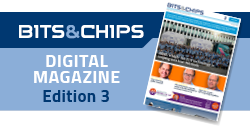More and more capital is finding its way to European and Dutch startups and scale-ups. That’s excellent news, says a Dutchman who has worked in Silicon Valley for 12 years, but it’s not enough.
This morning, I took the exit at Menlo Park’s Sand Hill Road to go meet up with a client. The Californian sun was shining and things looked quiet and peaceful. It was almost like Sand Hill Road – home to several high-profile venture capital companies – was trying to mask the intensity and the dynamics that make Silicon Valley what it is. At the surface, things seemed calm, but this area remains unique, highly competitive and incredibly fast moving. I, once more, felt blessed to be able to live and work in this amazing place; it’s very addictive.
People all over the globe, but mostly from Europe and my native country, the Netherlands, ask me what I think the big differences are between ‘here’ and ‘there.’ For a long time, my answer has been: access to capital. In the US, it’s quite common to raise tens of millions of dollars with a solid business idea, some customer signal, but without a lot of revenue. In the Netherlands, I was getting calls from companies that raised 750,000 euros, when in fact, they should be scaling because they already had revenue – or were even making a profit.
Fortunately, it seems that Europe and the Netherlands finally woke up to more aggressive ways of funding. More capital is being deployed. Pension funds have woken up and are starting to make investments in startups. I’ve seen many articles in European and Dutch newspapers celebrating these developments. I agree that there’s cause for celebration, but in my opinion, there are still some elements missing.
First, I would encourage everyone to think big and bigger. What are we waiting for, people? Let’s go invest, try, experiment, fail, fail fast, learn and do it again – and then get it right! The journey towards creating the next Philips (my first love) or the next ASML is super exciting, but it’s only possible in a climate where people aren’t afraid to think big.
Secondly, a friend of mine always says that he “likes rich friends.” He’s right. There’s no nobility in poverty. So, do companies in Europe compensate well enough? Are they giving employees enough skin in the game for them to get a meaningful payout after a successful exit? Are there enough incentives that encourage employees enough to leave large companies, join startups, make a ton of money and then start another one? Or coach new entrepreneurs? Success breeds success. The more money is made, the more money is being re-deployed.
Thirdly, be more bold and outspoken. “ASML is one of our best-kept secrets,” people in the Netherlands keep telling me with a big smile and a lot of pride. If only ASML wasn’t a secret. What if the whole world knew about this company, one of Europe’s largest tech firms, born in a small town in Brabant, the Netherlands. That’s some great PR. ASML should be way more present in global conversations around supply chains, China, diversity, new business models and many more topics. It should become a thought leader. This would create an amazing slipstream of activity and new energy for the country, the region and new businesses.
Fourth. Did you know that Stanford University, right in the heart of Silicon Valley, gets around 1 billion dollars in gifts from alumni? It makes Stanford an intrinsic part of the Valley’s startup and value creation ecosystem. When you talk to professors here, you can tell they’re in tune with real-world problems. They consult, they advise and they’re connected to entrepreneurs and companies.
Last but not least: the mindset. After spending 12 years in the US, I get frustrated with how entitled and complacent Dutch people can be. This puts out the fire in the belly needed to go build the next big thing. Yes, in Holland, you’re protected by a safety net, you won’t lose your health insurance when you get fired, your pension is amazing, and so on. My advice would be: cherish it, but pretend it doesn’t exist and go create the next big thing while cheering for all other people who do the same.




